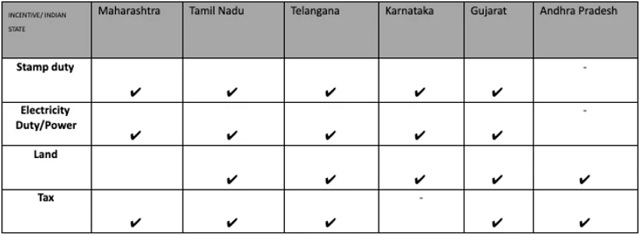In 1991, India opened up its economy to the world and attracted lot of investment from international companies across sectors. To make India a manufacturing and global design hub, the Indian government in 2014 announced an ambitious program "Make in India". Such an initiative has positively impacted sectors such as phone manufacturing in the recent years, with global companies such as Samsung and Xiaomi moving some of their manufacturing to India. Now, to overcome the challenges being faced due to the COVID-19 pandemic and to make the country an export hub rather import dependent, India has announced various schemes to reinforce this initiative, with a focus towards self-reliance. The program also identifies priority sectors, with specific benefits or relaxations extended keeping in mind the sector requirement – for example, for the automobile sector, certain licensing exemptions are allowed for automobiles and as well as rebates for research and development and for the leather industry, some exemptions from excise and import duties have been put in place. The 'Invest India' program also provides guidance and helps in procuring approvals for factories or projects.
The above measures will not only attract companies to set up in India, to tap into the huge potential market in India, but will also encourage them to make India a global supplier for their global operations. Many international companies are not only considering establishment of their factories in India but few are reportedly also planning to move their manufacturing bases from other countries, to India.
We highlight some of the key considerations to be kept in mind when deciding to 'set up' a factory in India.
1. Registering an Indian entity
A physical presence is required to carry out manufacturing activities in India. A manufacturing facility may be set up by either a company or a partnership firm (including an LLP). A limited company (private or public) is still the most popular form of organisation for any manufacturing business.
A foreign company may either decide to set up a wholly-owned subsidiary in India (foreign exchange regulations regulate the limit of foreign direct investment depending on the sector) or enter into a joint venture (JV) with a local partner. A JV has the benefit of a local partner's experience and knowledge of the Indian market, but the foreign company should be careful in selection of the JV partner and to structure the agreement to participate effectively in the JV. A local entity may be incorporated under the provisions of Companies Act, 2013, which is a central (federal) Act. A foreign company may decide whether they wish to keep this company as a wholly-owned subsidiary or wish to make any local partner by diverting some shareholding in such incorporated entity. The entire incorporation process can now be completed online, subject to submission of underlying documents that may need to be notarized and apostilled. Once the submission is made, the process is streamlined and it may take 4 – 6 weeks to complete.
Takeaway: This is a necessary step in setting up the establishment and should be initiated once the decision to enter the Indian market is taken. Time should be budgeted for gathering the required documents.
2. Where to go
Once a company decides to enter India, apart from market and technical studies, it must identify a location within the country, which could be any Indian state. The choice of location should be an informed decision based on criteria such as product of the company, business-friendly policies and incentives, availability of raw material or supply chains, land availability, existing infrastructure, availability of skilled, unskilled or semi-skilled labour in the local population, political and administrative stability etc.. Proximity to ports, market, supply chains etc. will further help in deciding on a particular region/district of the state to set up the manufacturing base.
Almost all Indian states now offer general incentives for investment (such as less-expensive land, stamp duty rebates, exemption from electricity charges, low-interest loans, subsidy on certain industries) including administrative measures, such as 'single window' clearance for facilitation of approvals at one place or through one nodal agency. The nodal agencies coordinate various compliances, which have proven effective in making the process transparent and reducing timelines. However, in some states, due to the multiplicity of agencies/ government departments that grant such approvals, procuring approvals and licenses remains a time-consuming process.
To attract more investment, the most industrialized and progressive states extend benefits/incentives from time to time, or introduce new policies. The following table provides an overview of the benefits extended by some more-industrialised Indian states. The list is not exhaustive:

Takeaway: Where to go in India is as important as deciding whether to enter India. Some states are more investor and investment-friendly than others, or some states have become hubs of particular industries such as Tamil Nadu for automobiles. Assess whether the identified location has any unique risks or singular benefits.
3. Land
Land with clear title and proper access is the most critical aspect in setting up a factory. It may lead to significant monetary loss if subsequent deficiencies are found in title or approvals which were to be taken prior to entering upon the land or initiation of construction.
For setting up a factory, agricultural or private land cannot be used until converted to industrial use. This is a common practice, however may be a time-consuming exercise and may involve repeated liaising with the concerned government department. Acquisition of private land also would require addressing issues such as land fragmentation and compliance with local land ceiling laws.
Once land is identified, a full title due diligence should be carried out to ensure that title is clear and the land is free from encumbrances such as mortgages and litigations. The maximum period for which governments allow access to land records is 30 years and it is always advisable to carry out the diligence for this full period. Once this is done, during the conveyancing process, underlying documentation should properly drafted and all associated fees and duties (such as stamp duty, registration etc.) should be fully paid. All original documents also should be retained, as they may be later required while raising finance.
Takeaway: It is preferable to lease/buy land in industrial parks rather than acquire from private sources. This mitigates a large part of the title-related risk while buying private land.
4. Setting up a factory
Every factory in India has to comply with the Factories Act, 1948 ("Factories Act"). A manufacturing unit is considered as a 'factory' if 10 or more workers undertake the manufacturing process with power, or 20 workers manufacture without power. The Factories Act applies to all manufacturing processes and establishments in India, and various states have also introduced their own rules to implement its provisions.
Basic requirement is a factory license: In most cases, an owner can register the factory online with the state government and request grant of a license. Each state has different timelines and approvals depending on the nature of the manufacturing process – for example, if any factory proposes to utilise any hazardous substances, the registration process may need some additional documents and approvals, and may take slightly longer. In many states, land-related documents are required to be submitted along with the application so it is important to complete land acquisition prior to submitting the application.
Pre-construction approvals: Other than the factory license, there are a number of other approvals that a factory has to obtain, prior or in parallel to construction. These can vary from state to state, but standard approvals are building plan and site approval, consent to establish, procuring a power and water connection, fire permissions, boilers and explosives-related permissions, building a sewage or effluent treatment plant, or receiving 'no-objection' from the pollution control board (if the industry is highly polluting, an environmental impact assessment study). Specific types of industries (such as drugs, pharmaceuticals) may also require separate registration with the sectoral regulator.
Employees: Factories need a combination of skilled, semi-skilled or unskilled labour, depending on the requirement of the manufacturing process. These workmen may be hired on a permanent, or temporary or 'contract' basis. All owners have to comply with labour laws and might need to procure registrations and licenses depending on the number and nature of the workmen employed in the factory, which may also vary from state to state. Owners should take special care in managing contractors who provide labour and supervise the same, be vigilant of not hiring child labour and of human trafficking issues. Owners will also need to be mindful of workman retrenchment provisions under Indian law, which are complex and often require specialised advise to navigate.
Importing of equipment: If technology or equipment is required to be imported before the factory can begin operations, clearances are to be obtained from the customs authorities. While for most equipment, import clearance procedures are generally transparent, multiple rounds of documentation may be required. Proper agreements should also be set in place depending on how the equipment is financed and brought into India, which may need the involvement of an authorised dealer bank.
Takeaway: Some pre-construction compliances will take less time than others, so this should be anticipated when setting project timelines.
5. Running a factory:
After completion of construction and installation of equipment, once a factory is operational, there are ongoing compliances under the Factories Act (such as filing of returns/ intimations) as well as under separate labour laws. Additional requirements in relation to health and safety for workmen are also expected to be maintained at all times, as well as public display of notices in vernacular languages, ensuring hygienic conditions and suitable sanitation facilities for workmen. Many states now offer online systems for certain compliances, and have also prescribed fixed intervals of inspection for government officers to visit factory sites and certify that all compliances are being met.
The person designated as an 'occupier' in the registration application (usually any manager/director of the company) will be responsible for non-compliance by the factory of requirements under the Factories Act, labour laws and other basic compliances regarding health, safety standards, provision of amenities to workmen and ensuring payments are made. It is usually advisable to designate the manager or director who has local knowledge of these compliances, as the owner.
Takeaway: Put in place an effective monitoring system and plan regular compliances in advance to ensure no delay.
6. What to expect
The government has made a number of policy announcements reinforcing its commitment to make manufacturing attractive in India, and policy push in this direction is expected to continue. Greater clarity is expected in the coming months. For this reason, any manufacturer's post-COVID business strategy could certainly benefit by considering manufacturing in India since, worldwide, businesses are revisiting these strategies, with particular emphasis on business continuity plans in supply chain. Due to this, diversifying part of a manufacturing base to India may be an attractive strategy to reduce risk. While 'ease of doing business' has undoubtedly improved in India, timelines should be realistically set for implementation, keeping in mind that government departments are involved at almost all stages of setting up. Practically, some bottlenecks do remain in the establishment process, but major hurdles have been streamlined and remaining issues are much easier to navigate with proper on-ground support.
The content of this article is intended to provide a general guide to the subject matter. Specialist advice should be sought about your specific circumstances.


